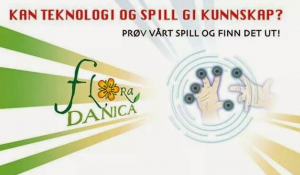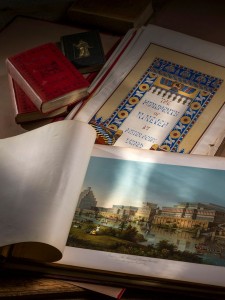 The ARK4 Digital Heritage Library presented its game platform at Researchers Night, the 23rd of September in one of the biggest events of NTNU for school students from the immediate region. Around 1300 students visited the NTNU research stand number 10 at Gløshaugen in Trondheim and ARK4 quizzes and games seem to inspire the students to check their knowledge. The most popular of the games was the quiz about Saint Olav and the city of Trondheim and the Herbs of magic.
The ARK4 Digital Heritage Library presented its game platform at Researchers Night, the 23rd of September in one of the biggest events of NTNU for school students from the immediate region. Around 1300 students visited the NTNU research stand number 10 at Gløshaugen in Trondheim and ARK4 quizzes and games seem to inspire the students to check their knowledge. The most popular of the games was the quiz about Saint Olav and the city of Trondheim and the Herbs of magic.
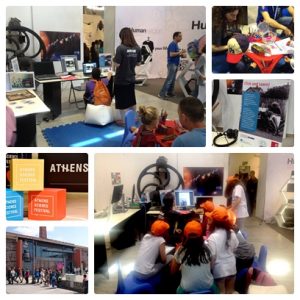
Ark4 has produced games in three main languages, Norwegian English and Greek and was also presented in the Researchers night at Athens the 30th of September for Greek school students by our main collaborator in phase 2 was, Digital Curation Unit Athena RC (DCU)and Europeana research. The DCU team consisted of: Agiatis Bernadou, Dimitris Gavrilis, Eliza Papaki, Nephelie Chatzidiakou, Eleni Afiontzi. DCU has developed the software and all the games in the website “ARK4 A digital heritage Library” with content produced by NTNU UB and the DCU team. The platform is now available to all as an open gaming platform called “ARK4 is a digital heritage library” of games where the users deliver their answers to surveys as well on the game experience and survey results are stored at the DCU server and is free to use.
Each game is seen as a widget that can be activated within the platform for a specific user group. It contains the questions, visuals from our archives and from Europeana archives and our common aim in phase 2 was to explore the possibility of creating an open source game platform, where all of games would become accessible to the common user. The products have been shared with teaching communities, museums, archive institutions, academics, and students and workshops and demonstration stand s have been organized for their dissemination. The project will continue with further presentations and analysis of the data collected in 2017 in order to proceed in publications.
Aiming to draw conclusions on the impact of the digital game as learning activity, among other ARK4 employed mixed methods for data collection ranged from questionnaires to observation-notes tand informal discussions with the students that passed by our stand in Researchers night in Trondheim. Similar methods have been applied at the workshops we have organized for schools and university students as well. In particular, the participants provide their own feedback by filling questionnaires evaluating the quality of the gaming experience or by answering knowledge tests before and following their interaction with the digital game. This data was further enriched by observation of the actual gaming performance and by moderated group discussions with project members. The analysis of the data in now a work in progress and focuses on three factors: investigating a) the degree of coordination among the users, b) the type of collaboration and c) the positioning of the users’ interactions and their meaning.
Knowledge gained from several workshops and the feedback delivered bu the users allowed us to draw some preliminary conclusions:
- digital technology and games has been an attractive tool for High School students for knowledge sharing.
- the idea of team work and participatory design seemed engaging.
- the students participated actively in seeking information.
- users were interacting socially, reflecting and seeking information, in the context of the activity, using mobile technology.

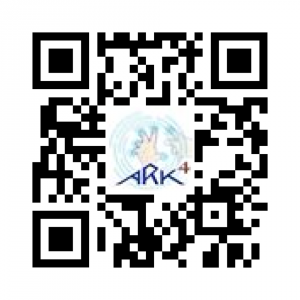
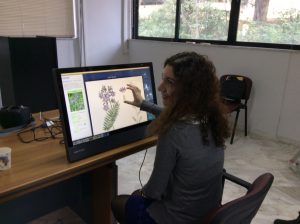
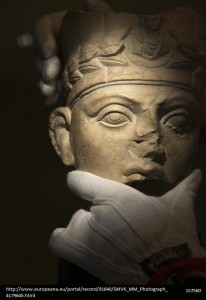 eir total destruction. Such numerous examples documented in recent times call for action.
eir total destruction. Such numerous examples documented in recent times call for action.